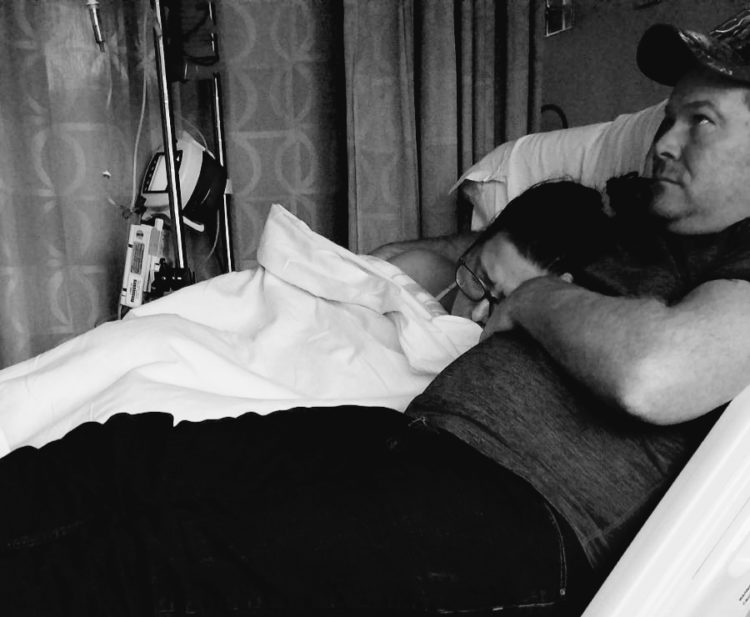What I Know Now as a Chronic Illness Patient Who Used to Be a Nurse
I’m a 43-year-old nurse. I’m proud because I know I’ve been a good nurse, but some recent life events have left me wondering if I’m judging myself based on the right question. I based my assessment on, “Have I been the nurse I wanted to be?” when I should have been asking, “Have I been the nurse you needed me to be?”
I am sick. Not your run-of-the-mill cold with sniffles or even a bad flu that knocks you down for weeks sick. I’m the kind of sick that changes your life. At first, and for quite some time, they didn’t know what was wrong with me. My symptoms were vague and not debilitating at first, but were enough that I was seeking answers and relief. Normal daily life was getting increasingly difficult. I was tired and felt short of breath with normal exertion and my chest felt like someone was tightening a rope around it. When I ate the pain was almost unbearable. My body was not being kind to me.
With each complaint of shortness of breath, poor control of my life-long asthma was blamed, even though I didn’t make a peep of a wheeze. Of course, steroids were prescribed. The upset stomach and feeling “off” was then blamed on the steroids, even though those symptoms had been there long before they became a routine part of my medication regimen. As time passed and my symptoms did not, I could see the look in their eyes… the “give this girl anxiety medication” look, as I like to call it.
A year passed and my symptoms continued to worsen. I was losing my social life, missing out on so much. Finally, after countless tests, visits and evaluations, I was diagnosed with a rare neurological disorder that was triggered by an autoimmune illness of unknown origin. While the diagnosis was scary, there was a sense of relief that finally now my ailments were justified and I would be free from judgment. Unfortunately, I was wrong.
Fast-forward six months and my illness took a turn for the worse. I was on hospital admission number four in five short months, and because my illness is rare, it was also a rarity that I had a care team that was familiar with it or understood associated complications. I would be exhausted from trying to breath with both a respiratory and cardiac system that was ridden with neuropathy. When I would seek help, I would describe my shortness of breath. They would listen to my lungs with no wheeze. My oxygen levels would still be stable. This is when the judgment would start.
They wouldn’t hear lung sounds in the lower half of my lungs so when they documented it, the notation wouldn’t note concern of severe lung restriction — it would more often read “poor effort and lack of exertion.” My uncomfortably fast heart rate would be noted as “tachycardia followed by probable anxiety” even though I was calm. As with any assessment I would be asked about pain. I have pain, I am always in pain… but I had gotten good at faking comfort. I would answer honestly and even though it wouldn’t be a part of my chief complaint, my acknowledgement of substantial pain in my stomach and my chest would be met with the questioning eyes and again assumptions about me seeking attention and medication.
By the time the interviews and assessments were done… I was anxious. Not because of an underlying mental health condition or because I couldn’t cope with my own symptoms, but from the sheer fact that no one was listening. When I did encounter a nurse who would truly listen to me, the sense of relief and trust was overwhelming. Only in these circumstances did I feel OK to continue saying, “I am not OK,” “I hurt,” “I don’t feel right” and most importantly, “I am scared.”
That last one was rarely ever said out loud, but rather screamed deafeningly inside my own head. I had to keep that to myself because I knew the acknowledgement of fear would only give them ammunition in their plight to peg me as anxious, which would make my plight for help even harder.
I could write a book about my experiences like this… but I don’t seek to complain or diminish the incredible work done by those around me, my peers. There was always a nurse and/or a physician who would finally see through all of the fog and try to help me find a pathway through. Those incredible people saved my life — physically and mentally.
I do want to reflect and say to my past patients, I hope and I pray that I was that nurse who listened and who you trusted. I am sure I fell down on that time and again, and I want you to know I am truly sorry. My time caring for patients has sadly come to an end, but my perspective has given me a unique insight that I feel is important to share with nurses and patients alike, so here goes…
A few words of wisdom from a nurse who happens to be a patient…

To the Nurse or Provider:
Don’t let your lack of familiarity inhibit the care you give. Your patient and their loved ones are often your best textbooks for their disorder, if you will only take the time to ask them to educate you. Always be a student of your craft.
Be cautious not to fall into the trap of implicit bias when caring for your patients. Each patient deserves the time it takes for you to come to your own assessment, rather than continuing the judgment of those before you. This is the only guarantee you will deliver the best possible care. An open mind fosters compassion.
Remember pain comes in all forms and that the worst pain is often not physical. Sometimes, a patient with a chronic illness has emotions so strong — like guilt, fear, anger, sadness and regret — they can mimic true pain. Our schedules are busy, busier than ever, but a good nurse/provider will recognize that special pain in their patients’ eyes or hear it in their voice. Take 10 minutes to hold a hand, to listen, to let them know they’re entitled to all their feelings and that there are people on their side. No pity, just listen… not just hear, but listen.
Always be aware of your other patients. Not the ones on your census/assignment, but in the room sitting around your patient, on the phone calling with concern, sitting in the hall staring blankly and numb or in the chapel making a desperate plea to a God, their God, for something to make some of the pain go away. They are important and their strength and well-being is imperative to you and your patient. Believe it or not, they are also what can help you survive your own pain and stress through your patient’s journey.
It is OK to shed a tear. It’s a fine balance to walk this tightrope of emotions. Remain strong and stoic, but let them know you care. Shedding a tear while still appearing in control and strong is a gift, and it comes with experience — the experience of sharing loss, pain and suffering with others. We must learn how to control how much to share and when, but some small tears while in the company of those grieving what is or what will be can be a sign of strength. When you really need to let it out, please do it. Whether it be your car, the arms of a coworker in the break room or at home with someone you love… let that emotion out. Cry, scream, swear… let all of that hurt and negativity out. You have just grown, never forget the lessons you learned because they will make you that much better for every patient who follows. You must refresh your soul for the next one who will need you. As they say, a flashlight can only guide you in the dark if you recharge its batteries. Recharge your batteries.
Most importantly, be the caregiver your patient needs you to be.
To the Patient:
Help us be who you need us to be. Please know when nurses walk into your room, we want you to trust us, but sometimes forget that trust is earned. Remind us, be honest… keep us humble.
Never let anyone take charge of your path. It is your body, your choice. Let others inform you, guide you and provide you options, but you control your fate. Your body, your choice. When there comes a time that you are too weak to do that, relinquish that gift/right to someone you trust to be your voice when you can’t.
Our purpose is to be there for you. If you need us, ask. Don’t be afraid to be pegged as the “needy” one. If you need help that often, we’re likely missing something in our care for you. Help us figure it out. Have your family help us figure it out.
We sometimes forget that you are an everyday person, and our lingo and short speak might sound foreign to your ears. That can lead to unnecessary fear. Don’t be afraid to ask us to speak in a manner you understand and explain things. It is not just our job, but it is your undeniable right, so speak up.
Don’t ever try to brave for us. Cry if you need to cry. We are the safe place you should and can break down for a moment, an hour, a day… We see patients stay stoic and brave in front of their families who are there nearly round the clock in their attempt to support you… but we know you need a break to just let it out and break down the façade. Give us the subtle cue and we will advocate for a safe space for you.
Take my words for what you will. They are just based on my personal experience. And most importantly, a message to my past patients: I truly hope I was the nurse you needed me to be.
Sincerely,
A Nurse Who Happens to Be a Patient
A Patient Who Used to Be a Nurse….
Stacy L Norris, RN BSN MSM-HAN and patient of a rare chronic illness.
Getty image via dusanpetkovic

